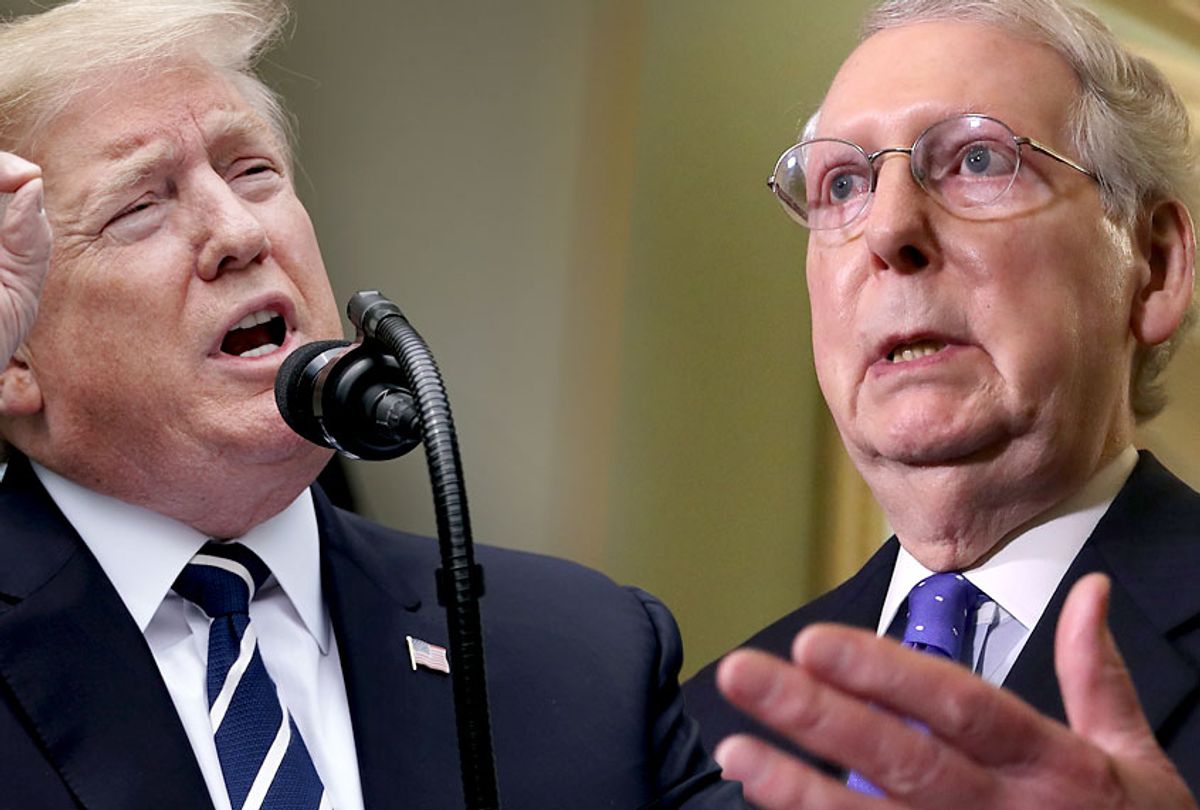Senate Majority Leader Mitch McConnell confirms a rebellion could be brewing within the Republican Party over President Donald Trump's newly-announced tariffs on Mexico.
"There is not much support in my conference for tariffs — that's for sure," McConnell said Tuesday afternoon.
When asked if he would personally oppose Trump's tariffs, McConnell hedged the question, saying he hoped the matter would be averted by the Trump administration's ongoing talks with Mexico.
"Our hope is that the tariffs will be avoided, and we'll not have to answer any hypotheticals, such as you suggest," McConnell told reporters.
Senate Majority Whip John Thune acknowledged that a resolution of disapproval could gain substantial support from Republicans. However, many questions remain unanswered about Trump's plan.
"There’s a lot of questions about it. But I mean, suffice it to say, our members have a lot of concerns," Thune said. "They are very concerned about it,"
Sen. Ron Johnson, R-Wisc., expressed a similar thought after a policy luncheon attended by Republican senators and Trump administration lawyers.
"I think the administration ought to be concerned about another vote of disapproval on another national emergency act — this time about trying to implement tariffs," he said.
If Republicans do unite to thwart Trump's tariffs, it would be arguably one of the most substantial policy rebukes of his entire presidency — an unprecedented pushback against the president from his own party.
In March, a dozen Republican senators joined forces with Democrats to override Trump's attempt to declare a national emergency, which allowed the president to reallocate billions of dollars toward his coveted order wall. That resolution of disapproval was ultimately vetoed by the president. (At least 20 Republican senators would have had to support all of the Senate Democrats and two Senate independents in order to have overridden Trump's presidential veto.)
During a state visit to London earlier this week, Trump responded to the potential Republican revolt by saying, "I don't think they will do that. I think if they do, it's foolish."
If a resolution of disapproval is passed in Congress, it could jeopardize the president's declaration of a national emergency at the U.S.-Mexico border. That, in turn, could make it impossible for him to fund his campaign promise to "build that wall."
Trump's support for protectionism has long put him at odds with most establishment Republicans, who tend to support free trade and view protectionist tariffs as a form of taxation, which they must oppose in principle. The president has expressed protectionist views as far back as the 1980's. By contrast, Trump's director of the White House National Trade Council is Peter Navarro, an economist long known for his protectionist views, who defended the president's trade policies in a USA Today editorial last year, writing:
No president has done more to defend the American manufacturing base from unfair trade practices than Donald J. Trump. What may surprise even his critics is that no president — since Lyndon B. Johnson declared a “war on poverty” — has done more to lift the prospects of low- and moderate-income families than President Trump.

Shares